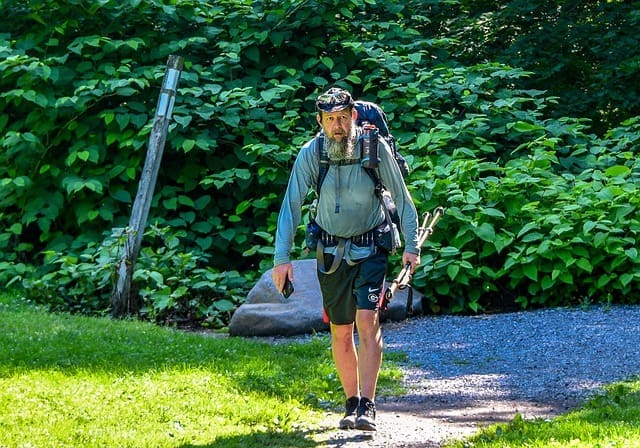A thru-hike refers to hiking any long-distance trail from end to end. Famous examples of trails that people thru-hike are the Appalachian Trail and the Pacific Coast Trail, but plenty of others don’t require months to complete. The John Muir Trail, for example, takes around three weeks. However, whether you’re looking at a shorter or a longer distance, this is not the kind of trip you should embark on impulsively. Below are a few questions to consider first.
Money
As romantic as it might be to think that all you have to do is sling on a backpack and hit the road, completing these trails successfully actually requires money. There are two parts to it. You’ll need money for gear if you don’t already own some, and you’ll need to spend money along the way. Most people estimate that the Appalachian Trail, for example, costs around $1000 per month to hike. This includes food and accommodations.
Of course, you can spend more or less money. Some hikers take many days in trail towns where they pay for hotels, while others spend most of their time in the woods. You will need to purchase food. There may be a small fee for some campsites. As for gear, you will, at a minimum, need a tent, a backpack, and at least one pair of good shoes. If you don’t have savings and consider using your credit card for expenses, a better option is looking at personal loans. Personal loans usually come with a lower interest rate than credit cards. You can search online for a loan that suits your circumstances.
Fitness
A mistake that some people who embark on a thru-hike make is assuming that they can get fit along the way. Underestimating the level of fitness needed to complete a thru-hike is one of the reasons many leave the trail within the first week or two. People of all ages and varying fitness levels complete these trails. You do not need to be at the level of a pro athlete to do so but to reduce the risk of injury. You do need to train for it. Another one of the common fitness mistakes many make in this scenario is thinking general fitness will equate to thru-hike success. Keep in mind that if you are a regular runner or cyclist, this is not sufficient. The best way to train for carrying heavy loads on your back up and down hills is to carry heavy loads on your back up and downhills.
Support
Yet another thing to consider is what kind of support you have. Is there a friend or family member who can mail packages to mail drops you identify ahead of time? You can hike without the support, and many people do, but this is one way to save money and avoid the high cost of food in trail towns. It can also be helpful to have someone to check in with regularly to ensure that you are safe and well. In addition, depending on your individual situation, you may need someone to do things like pick up your mail, take care of pets, or house sit.
Featured Image by Bill Guenthner from Pixabay




